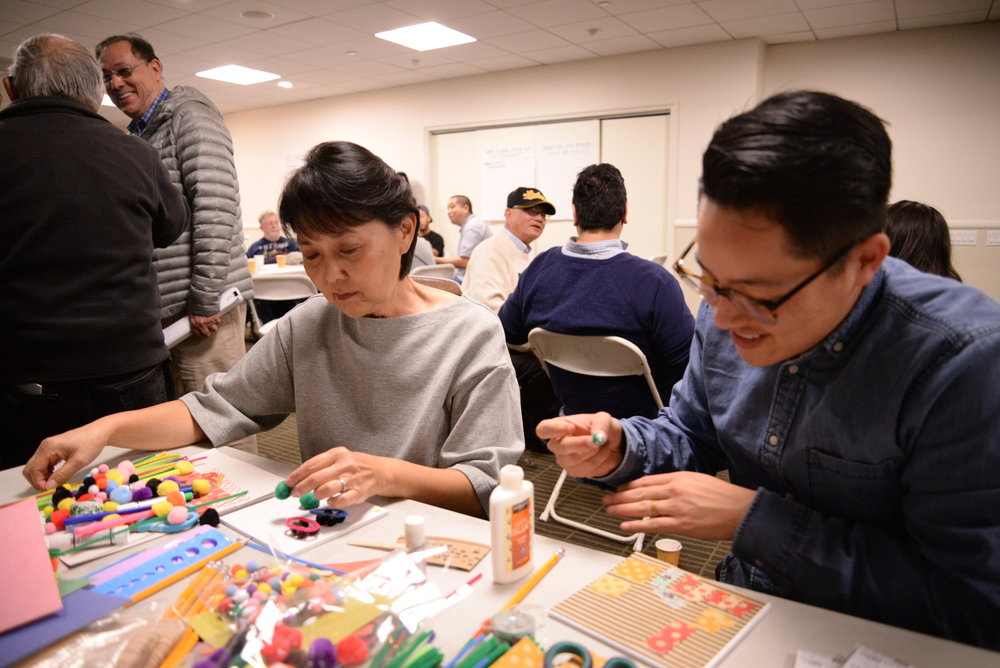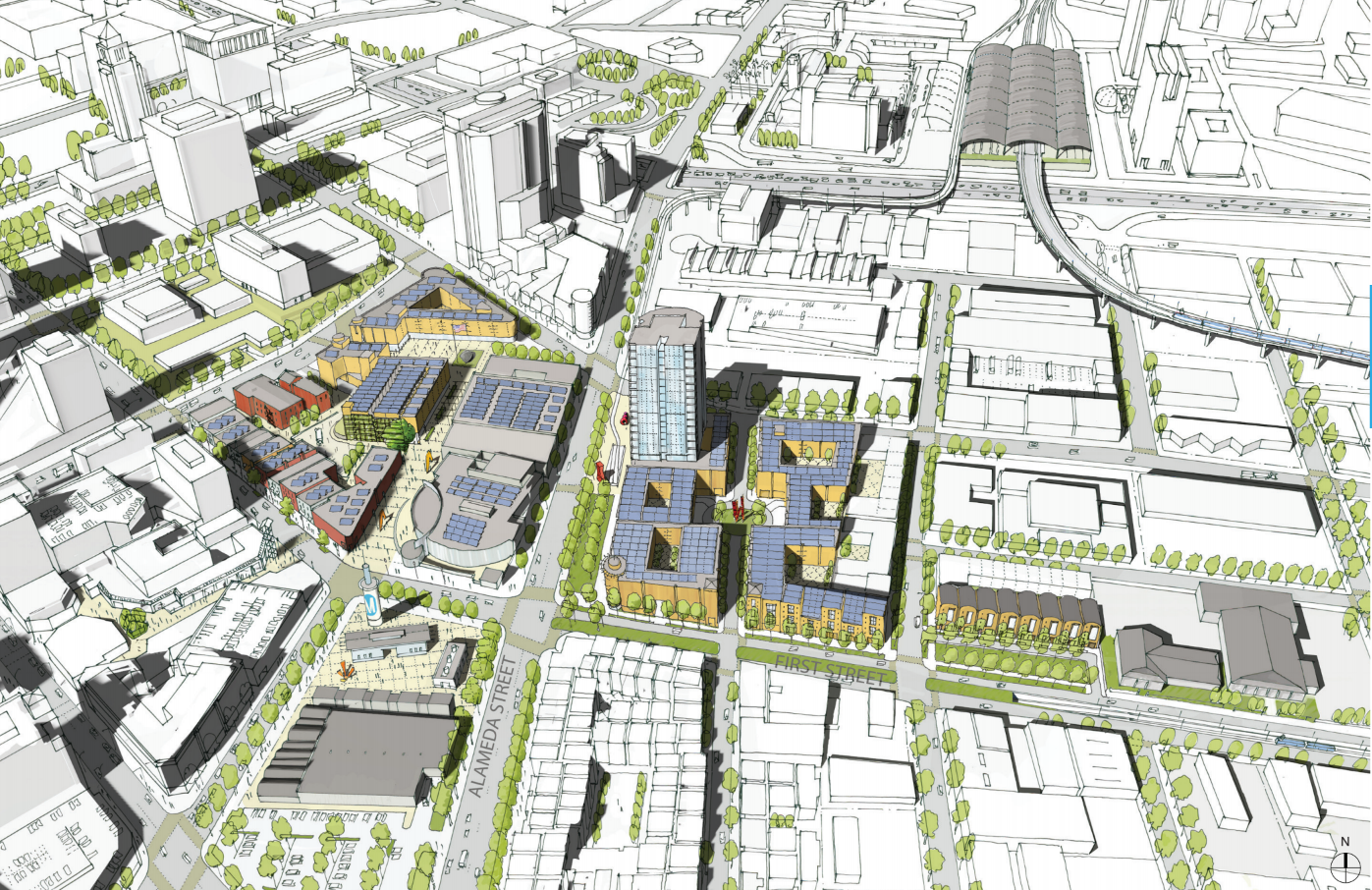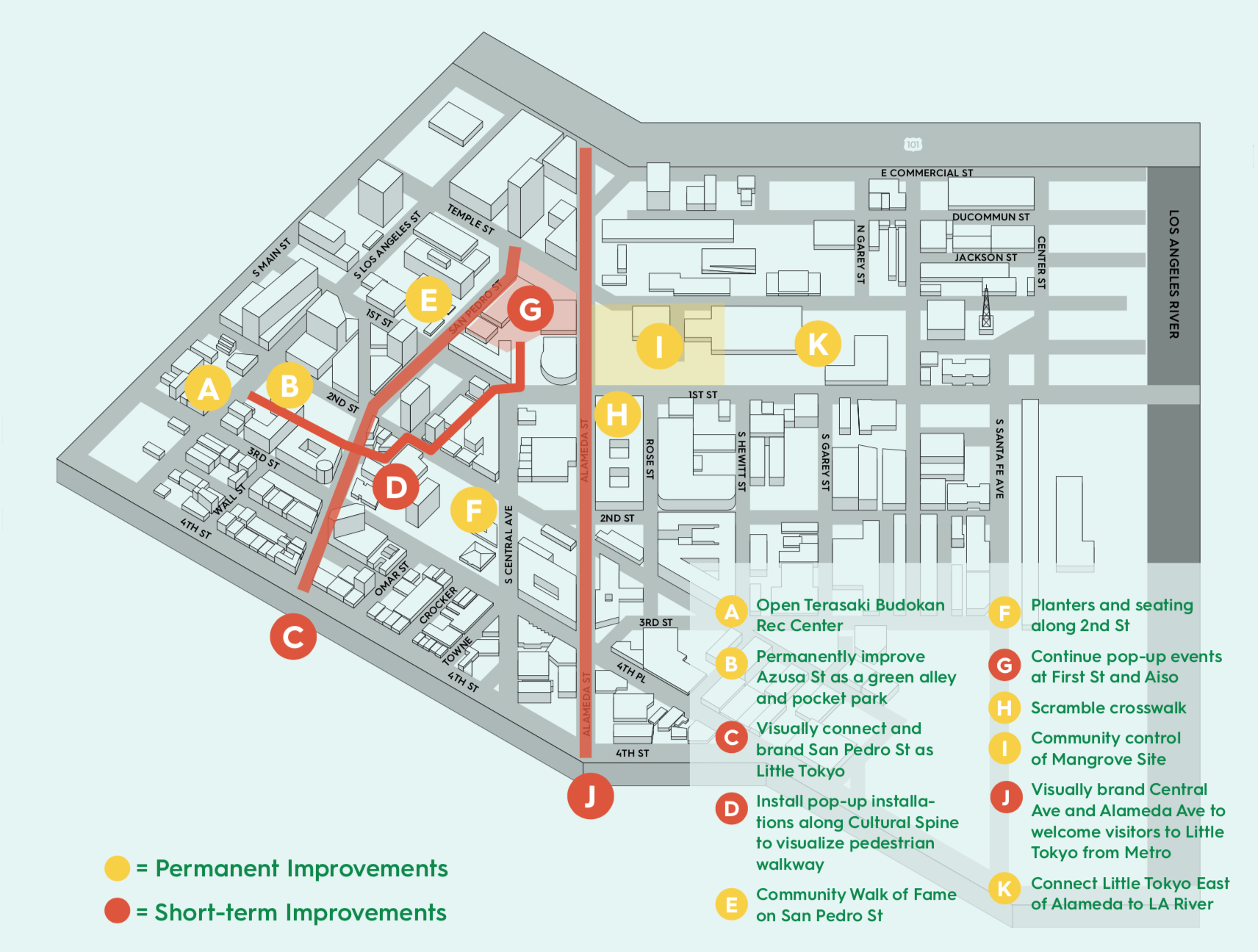Sustainable Little Tokyo (SLT2020) is a community-driven initiative to provide a range of immediate improvements and short-terms actions that strengthen and support the cultural, economic, environmental development of the historic neighborhood by 2020.

We need to sustain Little Tokyo because…
History
Little Tokyo is over 130 years old, the second oldest neighborhood in Los Angeles, and one of three remaining historic Japantowns in the United States.
Culture
Little Tokyo is one of two designated California Cultural Districts in the city of Los Angeles and has more than 50 traditional and contemporary cultural and spiritual groups, organizations, and institutions that range from informal gardening groups to 100-year-old Buddhist temples.
Fighting to Grow
First Street North, the Mangrove Site, and the Metro Regional Connector station site are city-owned land that are a vital part of Little Tokyo. Little Tokyo is urging the city support the SLT 2013 vision and to have the community determine the development of these parcels.
Long-standing Legacy Businesses are Under Threat
Long-time, family-run, and multigenerational small businesses integral to Little Tokyo's culture and identity are now struggling with rising rents and inconsistent patronage.
Lack of New Affordable Housing
The median household income in Little Tokyo is only $15,441, but there is very little affordable housing.

SLT Long-term Vision
In 2013, in response to plans for the Metro Regional Connector station as the busiest transit hub in LA County, Sustainable Little Tokyo embarked on a community-based vision process to design a scheme for First Street North, the Mangrove block, and suggestions for the Metro station site. Over 200 community members created the Sustainable Little Tokyo 2013 vision for equitable and sustainable development of three pieces of public, city-owned land.
To see the original 2013 version, click here!

SLT 2020: A Strategy
SLT2020 is a community-driven action plan to provide a short-term strategic vision for the equitable cultural development of the neighborhood by 2020.
For six months in 2017, we asked community leaders and advocates, residents, seniors, small businesses, and visitors what they would like to see in Little Tokyo by the year 2020. Using engagement tools such as arts-based model making, mapping, street-side inquiries, and door-to-door surveys, we had over 230 people share their visions for the neighborhood. By 2020, we would like to celebrate the vibrant history of Little Tokyo while continuing to fight for the self-determination and equitable development of the neighborhood that serves the people of this community.
Priorities
- Preserve existing cultural and spiritual institutions, including those without physical locations.
- Maintain unique goods and identity of LT.
- Organize a farmers market with culturally relevant produce.
- Connect Japanese Village Plaza to Weller Court and beyond to Los Angeles St.
- Make San Pedro St, Central Ave. and Alameda Ave. more reflective of LT.
- Create incubator spaces for community-supporting small businesses.
- Develop more affordable housing for low-income residents, families, and artists.

ARTS AND CULTURE
To strengthen the identity of the neighborhood
- More public art and murals to reflect history and provide more opportunities for local artists.
- More programming connecting Japanese American history to contemporary issues.
- Create more educational programs to preserve and celebrate cultural arts and history, such as cooking and crafts.
SMALL BUSINESS
To maintain unique goods and foods emblematic of Little Tokyo’s identity
- Continue to support existing small businesses.
- No more corporate or chain retail businesses.
- Rent support and mitigation for small businesses.
- Create funds and resources to support renovations and improvements to existing businesses.
- Full grocery store, laundromat, craft supply store, movie theater.
- Community land trust for temporary leases for commercial space.
HOUSING
To ensure affordable and secure housing for families and low-income residents
- Develop low-income housing, no more market-rate housing.
- Artists housing and live/work flex areas.
- Joint development on Regional connector side with housing.
- Educational and social programming for residents.
- More support services for the homeless community.
OPEN GREEN SPACE
To increase high quality public spaces throughout neighborhood
- Create park space with playground and exercise equipment for children and elders.
- More street planters and planted shade and fruit trees.
- Install pocket parks and small green areas along street.
- Plant vegetable gardens and urban farm spaces in open spaces and rooftops.
- More public restrooms and trash cans.
CONNECTIVITY
To foster greater community and ease of travel within and to the area
- Make Central Ave more reflective of Little Tokyo, especially at station site.
- Close portions of First St for festivals.
- Ensure pedestrian safety, bike access, and more off-street parking.
- Culturally connect with other ethnic neighborhoods.
- Connect East of Alameda with programming and pathways.
- Fight the West Santa Ana train line on Alameda.
- More affordable parking
SLT 2020 To-Do List!
Everyone can play a role in sustaining our community! Check out this list of things you can do to help!
SHORT TERM VISITOR/TOURISTS
- Go Local! Shop at local community-supporting businesses and avoid chains, corporate stores, and restaurants.
- Support legacy small businesses with word of mouth advertising, positive Yelp reviews and social media - Attend cultural events and festivals. Check out SustainableLittleTokyo.org and GoLittleTokyo.com for more.
SUPPORTERS
- See a project you want to help with or have your own idea? Attend or host an organizing meeting with SLT and LTCC! Bring your friends.
- Enroll your children in youth leadership programs with Little Tokyo Service Center, Kizuna, and Rising Stars.
- Volunteer at community events and organizations!
- Encourage your friends and neighbors to get involved!
- Support affordable housing and tenants’ rights! Get involved with Little Tokyo Service Center and register to vote!
- Produce new artwork in Little Tokyo! Get involved with SLT art projects!
SMALL BUSINESS OWNER
- Join the Little Tokyo Community Council (www.littletokyoLA.org)
- Get small business support from Little Tokyo Service Center (www.ltsc.org)
- Attend community events and get to know your neighbors.
- Advertise Little Tokyo events and posters.
- Support local gardeners and farmers markets.
- Join the Little Tokyo Business Association www.visitlittletokyo.com
RESIDENT
- Suggest changes to your neighborhood at the next LTCC meeting.
- See the Visitor’s To do list and check off all those actions!
- Support long-standing family-owned businesses.
- Get in touch with your local council person to support community changes!
- Practice everyday mottainai/sustainability, and support district-wide sustainability initiatives.
- Register to vote.
- Help organize community events in housing and in public spaces.
Get Involved
Sustainable Little Tokyo is an inclusive group of people who love Little Tokyo and are imagining a future for our historic Japantown. Become a part of the movement!